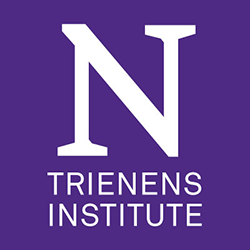PEPH Hybrid Event: Guiding the Development of Bioplastics and Biochemicals to Decarbonize the Chemical Sector

When:
Wednesday, January 31, 2024
12:00 PM - 1:00 PM CT
Where: Ford Motor Company Engineering Design Center, Room 2-350 (The Hive), 2133 Sheridan Road, Evanston, IL 60208 map it
Audience: Faculty/Staff - Student - Post Docs/Docs - Graduate Students
Contact:
Mike McMahon
mike.mcmahon@northwestern.edu
Group: Trienens Institute
Category: Lectures & Meetings, Environment & Sustainability
Description:
>> IN-PERSON Event Registration
>> VIRTUAL Event Registration
The Program on Plastics, Ecosystems, and Public Health (PEPH) will host Troy R. Hawkins, Group Manager, Fuels and Products Group at Argonne National Laboratory for a hybrid (in-person and virtual) event.
What: "Guiding the Development of Bioplastics and Biochemicals to Decarbonize the Chemical Sector"
Who: Troy R. Hawkins is Group Manager of the Fuels and Products Group at Argonne National Laboratory
When: Wednesday, January 31 | 12 - 1pm
Where: The Hive: Ford Motor Company Engineering Design Center | Room 2-350 | Online via Zoom
Abstract: The U.S. government is actively implementing policies to achieve net zero greenhouse gas emissions economy-wide by 2050. A key aspect of achieving this goal is transitioning our current petrochemical system to low-carbon feedstocks and processes. Moving the industry forward requires understanding the effect of proposed pathways for decarbonizing chemicals and plastics and building consensus around their impacts. Argonne National Laboratory has been actively developing the GREET Model for this purpose. This presentation will review Argonne’s recent developments in modeling of bio- and waste-based chemicals and plastics and advanced plastic recycling processes and discuss priorities for further advancement. Results for a study on the opportunity for increasing the circularity of PET flows through the U.S. economy using chemical recycling demonstrates the challenges associated with material collection and the importance of considering downcycling when designing processes to improve circularity. A parallel study of bio-PET highlights the importance of carbon sequestration through biogenic carbon content in plastics and the greenhouse gas tradeoffs associated with biodegradability. A study of polyurethane flows, performed as part of the Northwestern Responsible Innovation for Highly Recyclable Plastics (ResIn) project, illustrates the complexity of material recovery due to the many formulations and uses and highlights opportunities for the incorporation of biomass-derived precursors. Meanwhile, the GREET Model is actively used to support incentives under the California Low Carbon Fuel Standard and has recently been identified for calculating the carbon intensity of fuels and hydrogen in connection with the Inflation Reduction Act’s 40B, 45V, and 45Z credits. In this sense, it serves as a consistent, publicly available, and transparent source for parameterized pathway models. Building on its use for transportation systems, the GREET team has incorporated chemical and plastic pathways to build consensus around accounting for their life cycle greenhouse gas implications. The presentation will also provide an update on the status of the GREET model and present our comparison of results for high volume resins with those from other commonly used LCA databases.
Speaker Bio: Troy Hawkins is a Senior Scientist and leads the Fuels and Chemicals Group of Argonne National Laboratory’s Systems Assessment Center. His research focus is on improving the environmental performance of energy and product systems, with particular focus on decarbonization, where he applies life cycle assessment and other quantitative systems analysis approaches to provide actionable insights. Dr. Hawkins has evaluated the energy and environmental impacts of plastics and chemicals, conventional and alternative transportation energy systems, bioenergy systems, industrial processes, and decarbonization scenarios. His work contributes to the development of Argonne’s GREET (Greenhouse Gases, Regulated Emissions, and Energy Use in Technologies) model for life cycle analysis of energy systems, products, and technologies.
Prior to joining Argonne he led life cycle assessment research at the U.S. Environmental Protection Agency, worked as a consultant providing environmental and economic assessment for clients in the private and government sectors, and worked as a researcher in the Industrial Ecology Programme at the Norwegian University of Science and Technology. He holds a PhD from Carnegie Mellon University and a BS in Physics from the University of Michigan.
This conversation is part of the seminar series hosted by the Program on Plastics, Ecosystems, and Public Health at the Paula M. Trienens Institute for Sustainability and Energy.
Questions? Contact mike.mcmahon@northwestern.edu